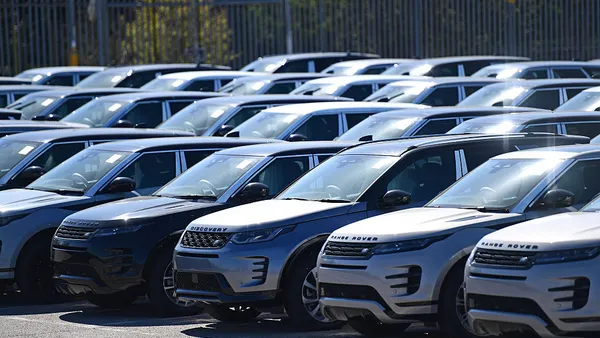Editor's note: This story is part of the WardsAuto digital archive, which may include content that was first published in print, or in different web layouts.
A boom in U.K. new-car sales is predicted for first quarter-2017, as buyers move to avoid changes to the road-tax system that will raise the price of owning some of Britain’s most popular cars as of April.
Online car retailer BuyaCar.co.uk says drivers will face higher ownership costs of up to £900 ($1,100) over three years as models such as Ford Fiesta, Vauxhall Astra and Nissan Qashqai lose their exemption from road tax.
The current U.K. tax scheme is based on carbon dioxide emissions. Any car emitting an average of less than 99g of CO2 for every kilometer driven is exempt from car tax.
But as of April 1, the exemption only will apply to vehicles with zero CO2 emissions – mainly electric cars.
Drivers of any other car will pay £140 ($171) in tax each year, apart from the first year that it’s on the road, when tax will still be calculated on CO2 emissions.
Those buying a car with an official price of more than £40,000 ($48,900) will face an annual “wealth tax” for cars between the ages of one and six years, taking their bill to £450 ($550) a year.
BuyaCar.co.uk Managing Director Austin Collins says a new Land Rover Discovery Sport HSE Black delivered before April will draw £390 ($477) in tax over three years. From April, the bill will rise to £1,100 ($1,344) as the car’s official price is more than £40,000.
Even the efficient Porsche Panamera 4 E-Hybrid, now exempt from tax, will attract a tax over three years of £925 ($1,130).
Collins says the new scheme is flawed because it doesn’t take account of the actual sold price.
“Everyone knows most cars are rarely sold at the list price because there are often huge discounts available,” he says. “So, when we’re selling a £40,000 car for £35,000 ($42,787), why should a customer have to pay a wealth tax?
“It’s also going to be expensive for people who buy extremely efficient hybrid cars with low emissions, such as the Toyota Prius. They’ll be paying tax at pretty much the same rate as someone who buys a big SUV.”
When it recently surveyed almost 1,000 people about when they plan to buy their next car, the retailer says it found the number planning a purchase in the next three months had doubled from six months earlier.
Dozens of models now exempt will attract £400 ($489) in tax charges over three years, when the new Treasury scheme begins April 1 for new cars registered after that date.
Collins says in the most extreme cases some buyers who choose a car that is now tax exempt will be charged almost £1,000 ($1,222) over three years.
And buyers of the lowest-priced new cars under the new system will see tax bills jump by more than 900% in some cases.
Buying a Dacia Sandero, Britain’s cheapest car at £5,995 ($7,328), now sees no road tax the first year and £30 ($36.7) every year after that. After April 1, this goes to £160 ($196.60) for the first year and £140 ($171) for every year after that, a 633% increase.
Collins says come Volkswagen Up! owners now pay £40 ($489) in tax over the first three years. This will increase to £420 ($513) over the same period, a 950% increase.
“Anyone buying a car after April next year could be in for a massive shock,” Collins says.
He says retailers already are reporting buyers are changing their cars early to ensure they are delivered and on the road before April 1. This will ensure that they are taxed under the current regime until they are scrapped.
But Collins says some buyers will be unable to beat the change, because of the time it takes to receive a new car after it is ordered.
“The waiting list for some popular cars is close to 16 weeks, so time is really running out to order a new car in time to avoid the tax changes,” he says.
Car tax revenues had been decreasing as more fuel-efficient vehicles came onto the market – some 20% of new vehicles sold in 2015 were tax exempt. The changes are expected to earn the Treasury more than a billion pounds ($12.2 billion) a year more from 2020.











